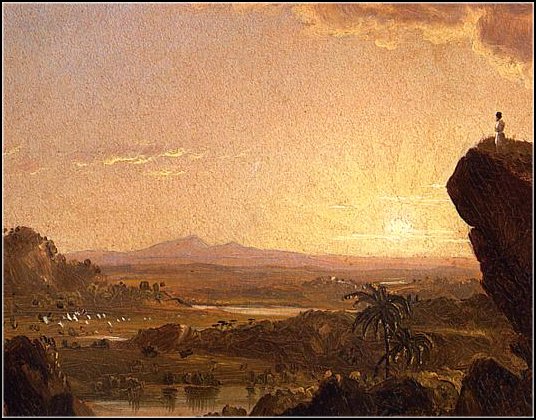
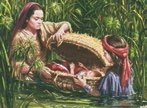
From 'Old Testament Prophets: Moses'
2014 Ensigh April
Anotated by Don R. Hender
Anotated by Don R. Hender

“So great was Moses that even Christ is described as a Prophet like unto this ancient leader of Israel’s hosts.”1 —Elder Bruce R. McConkie (1915–85) of the Quorum of the Twelve Apostles
["¶The LORD thy God will raise up unto thee a Prophet from the midst of thee, of thy brethern, like unto me; unto him ye shall hearken;" ~ Deuteronomy 18:15]
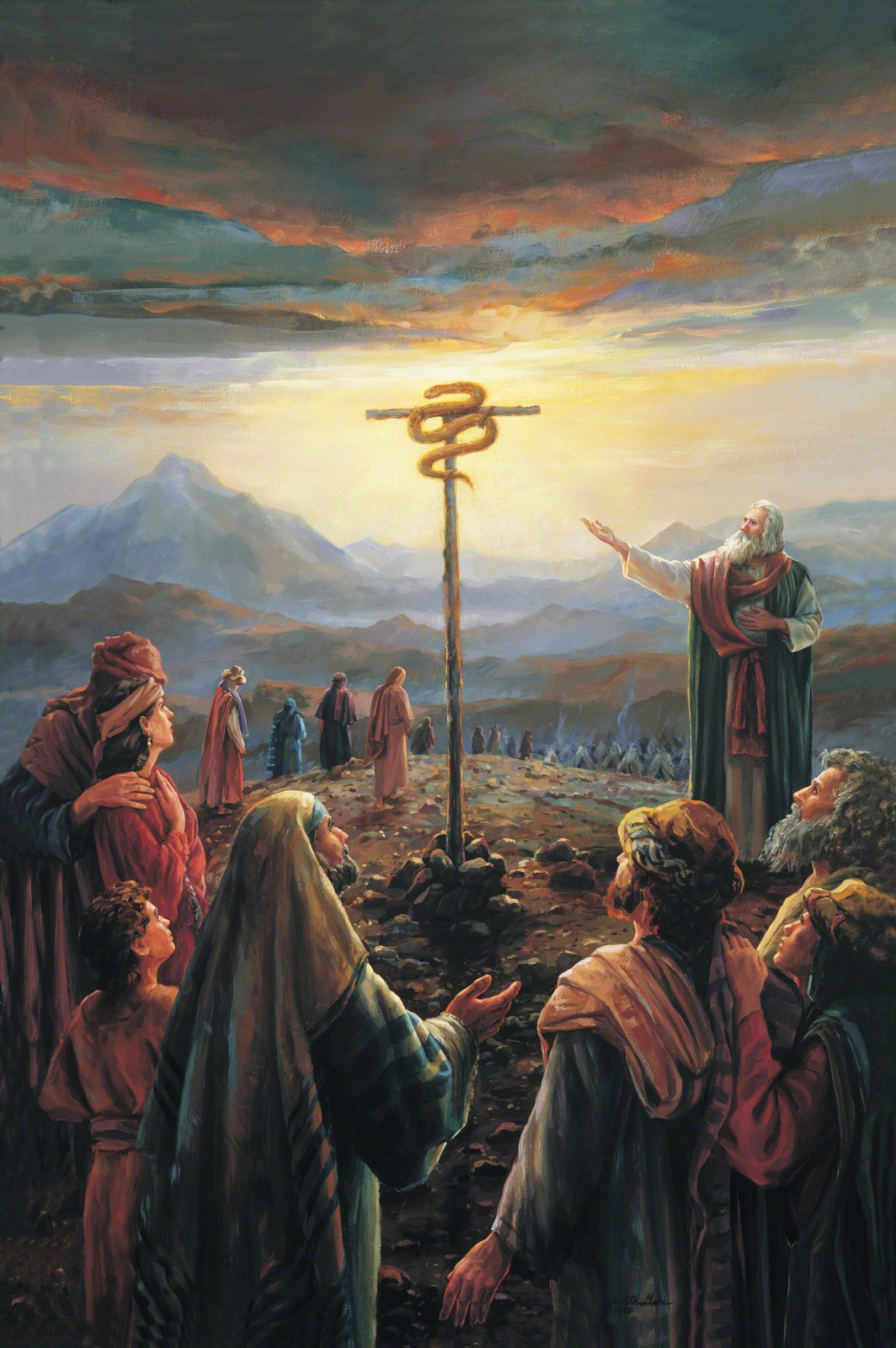 Moses did write and speak of Jesus Christ, the coming promised Messiah by name (Moses 6:54;
Moses 7:50; Moses 8:24). And in a number of ways and times he did further prophesy of his coming (Deuteronomy
18:15-18; Acts 3:22-26; 1 Nephi 22:21; 3 Nephi 20:23; & Numbers 21:8-9; 1 Nephi 17:41; Alma 33:18-22; & John
1:45).
Moses did write and speak of Jesus Christ, the coming promised Messiah by name (Moses 6:54;
Moses 7:50; Moses 8:24). And in a number of ways and times he did further prophesy of his coming (Deuteronomy
18:15-18; Acts 3:22-26; 1 Nephi 22:21; 3 Nephi 20:23; & Numbers 21:8-9; 1 Nephi 17:41; Alma 33:18-22; & John
1:45).
[This Section Is Given As if Moses Is Narrating His Story]
I was born in Egypt at a time when my people, the Israelites, were in bondage. Fearing the growing number of Israelite slaves, Pharaoh ordered all male Israelites to be slain at birth. To protect me, my mother hid me for three months after my birth before placing me in a basket among the Nile’s reeds. Pharaoh’s daughter discovered me and raised me as her son.2
When I was grown, I left Egypt and lived in the land of Midian. There I found favor with Jethro, a shepherd and a priest, and married his daughter Zipporah. From Jethro, I received the Melchizedek Priesthood.3
One day while I tended Jethro’s flock, the Lord appeared to me in a burning bush and called me to deliver the children of Israel from slavery.4
I returned to Egypt and told Pharaoh to free the Lord’s people, but instead he increased their burdens. The Lord sent a series of plagues upon the Egyptians, but Pharaoh hardened his heart and still refused to free the Israelites.
The final plague was a destroying angel that killed the firstborn son of every family in Egypt. The Israelites were protected from the destroying angel by spreading the blood of an unblemished lamb on their door mantel and by remaining indoors. Through me, the Lord instituted the Feast of the Passover as an ordinance to help the Israelites remember this miracle every year.5
This final plague caused Pharaoh to relent and free the Israelites. But Pharaoh later hardened his heart and sent his armies after the departing Israelites. The Lord blessed me with the power to part the Red Sea, and we escaped on dry ground while the sea flooded Pharaoh’s army.6
The Lord then led us through the wilderness in a cloud by day and a pillar of fire by night. He sustained us with water, manna, and quail.7
I climbed up Mount Sinai, where I remained for 40 days and received the Ten Commandments from the Lord. When I returned from the mountain, the Israelites had turned away from God and forged a golden calf to worship. They were no longer worthy to receive the law God gave me, so I broke the tablets containing it. I returned to the mountain, where the Lord gave me the lesser law that is called after my name—the law of Moses.8
In the wilderness the Lord revealed to me the designs to build a tabernacle, or portable temple. We carried the tabernacle with us in our travels so we could worship in it. In the tabernacle, the people received ordinances and I spoke to the Lord “face to face, as a man speaketh unto his friend.”9 The Lord also showed me how to craft the ark of the covenant, a holy relic that rested in the most sacred section of the tabernacle, the Holy of Holies.10
When the Lord sent “fiery serpents” to chastise the Israelites, I was commanded to make a serpent of brass and raise it high on a pole so that all who were bitten by the serpents could look to it and be healed. But because of their pride and the simplicity of the task, many would not look and therefore perished.11
The Lord caused the Israelites to wander in the wilderness for 40 years before allowing them to enter the promised land.12 I did not enter but was “taken up by the Spirit” unto the Lord.13
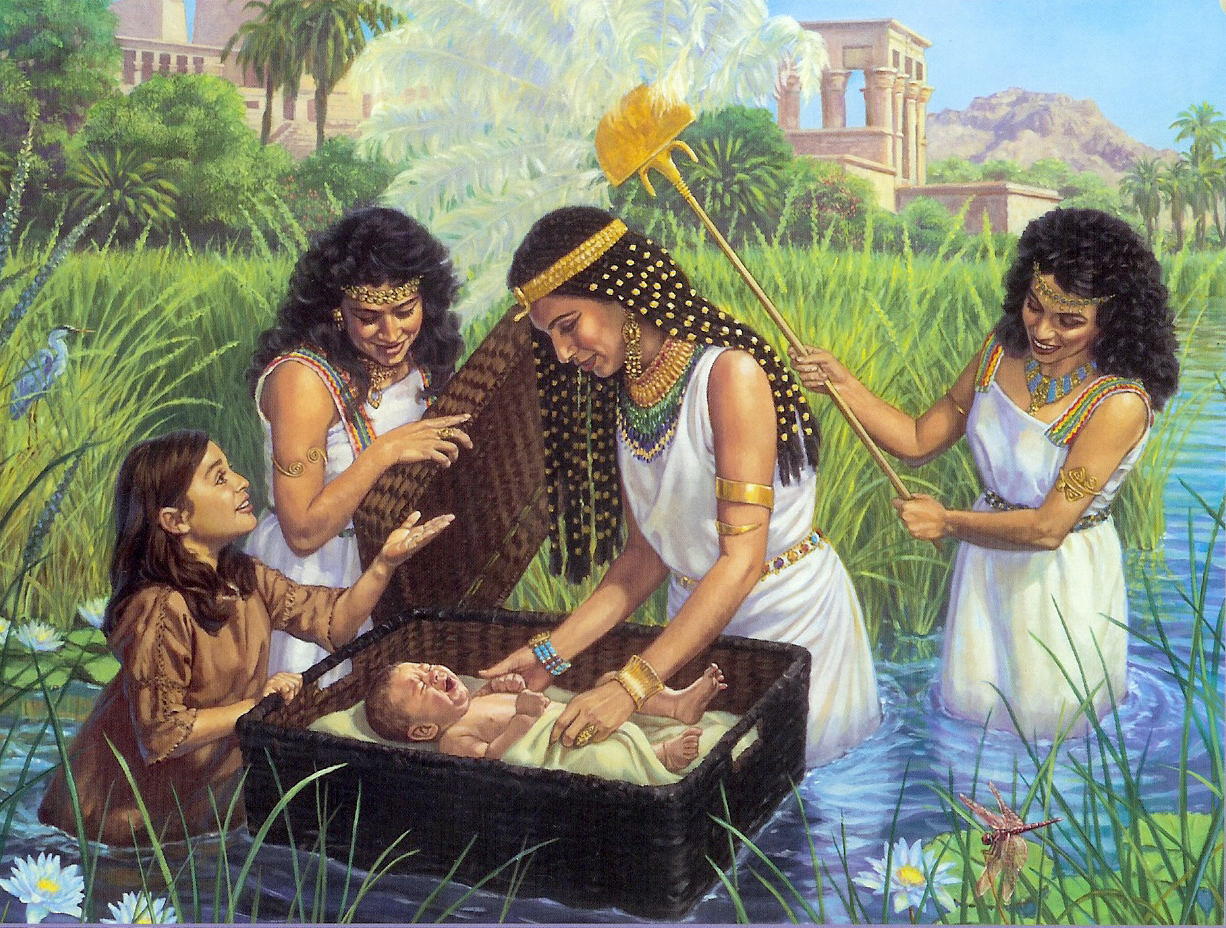 The king's own daughter took the baby from the nile. The name given the child was a Hebrew name, Moses, a name
not unfamiliar to the king's family. Joseph of Egypt and his family had lived in the house of Pharaoh and was
well received in, the 'Sheperd Kings', the Hyksos palace, whom many denote as being of Semitic lineage. And
thus Moses was not noticably different but blended well into his new family.
The king's own daughter took the baby from the nile. The name given the child was a Hebrew name, Moses, a name
not unfamiliar to the king's family. Joseph of Egypt and his family had lived in the house of Pharaoh and was
well received in, the 'Sheperd Kings', the Hyksos palace, whom many denote as being of Semitic lineage. And
thus Moses was not noticably different but blended well into his new family.
Now some think that wealth, fame and position is happiness. Moses in fact had it all, a Prince of Egypt. What would he be willing to trade his life of luxury for? High principles and righteousness in the Lord how would they compare to Moses' wealth and position? It was an ultimate test of character if there ever was one. Moses foresook his life of luxury and fled into the wildernes where he would find both himself and God.
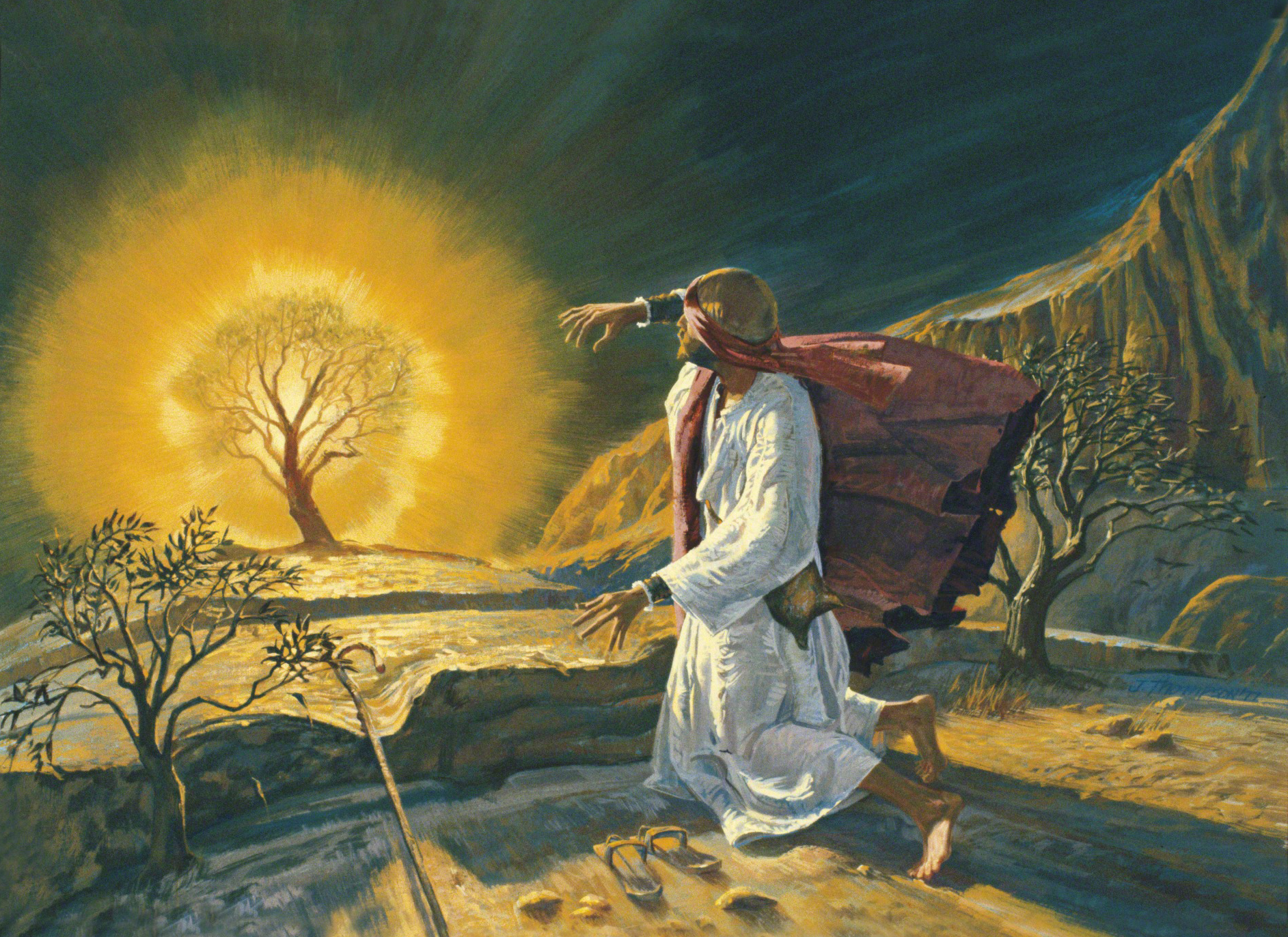
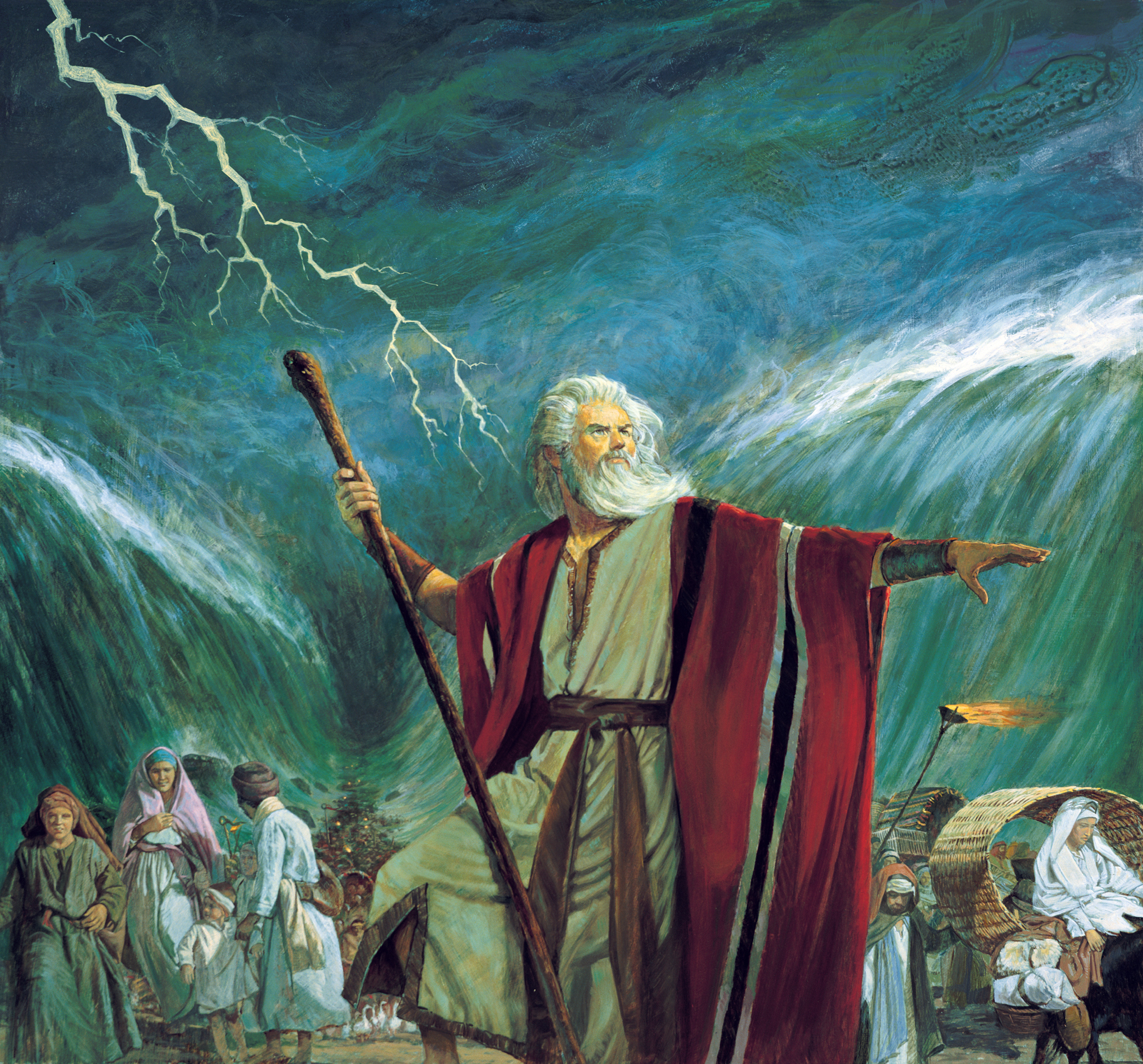 Moses became a tool in the hand of the Lord to free the House of Israel from bondage. He performed many miracles
including parting of the Red Sea. Through Moses the Lord gave Israel the law of performances and commandments
Moses became a tool in the hand of the Lord to free the House of Israel from bondage. He performed many miracles
including parting of the Red Sea. Through Moses the Lord gave Israel the law of performances and commandments
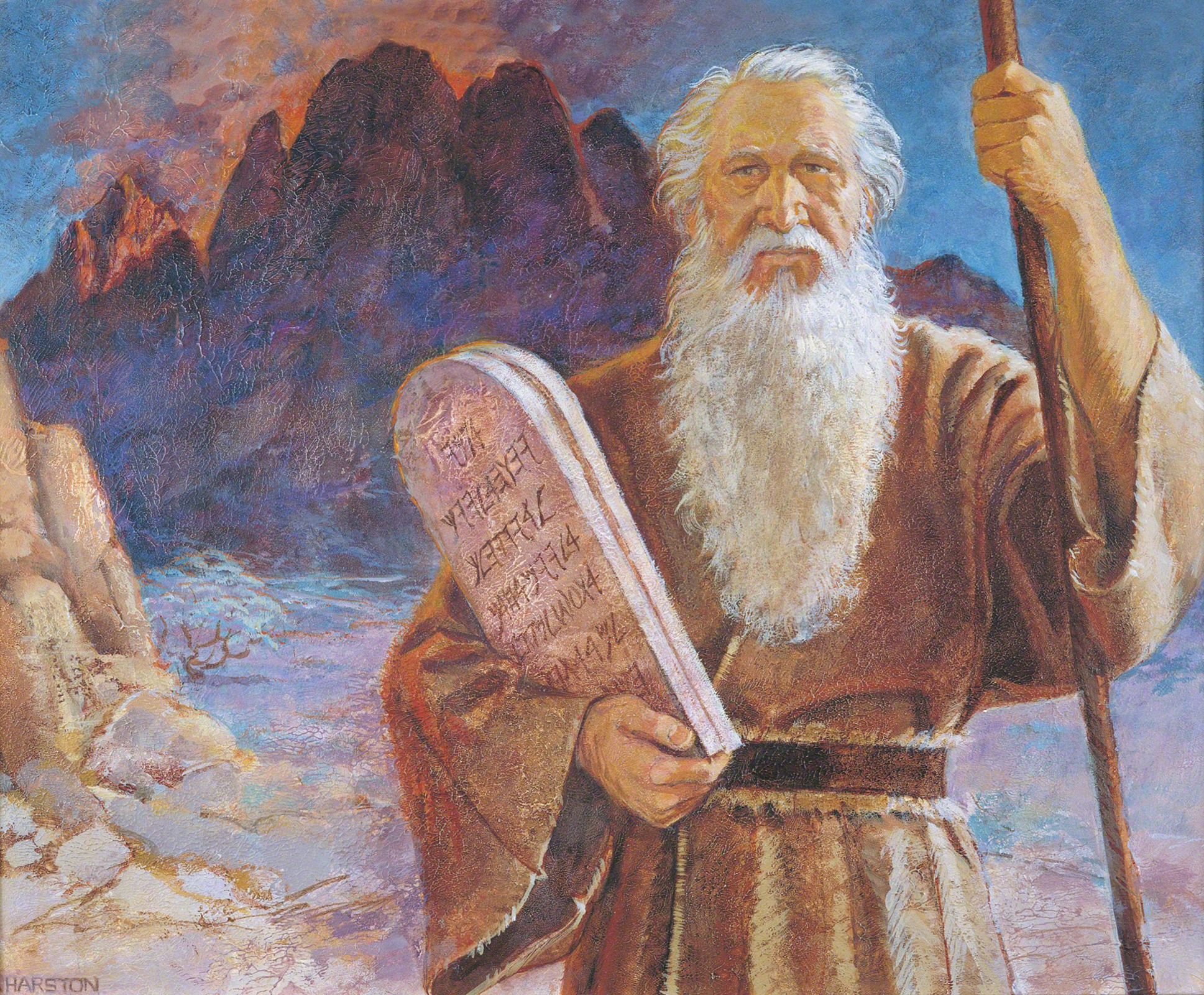 which were designed to bring them unto God. And by Moses the Lord ordained Aaron and his family unto the
priesthood of the Law of Moses, the priesthood of Aaron. And Moses also bestowed upon the son of Nun the mantle
which were designed to bring them unto God. And by Moses the Lord ordained Aaron and his family unto the
priesthood of the Law of Moses, the priesthood of Aaron. And Moses also bestowed upon the son of Nun the mantle
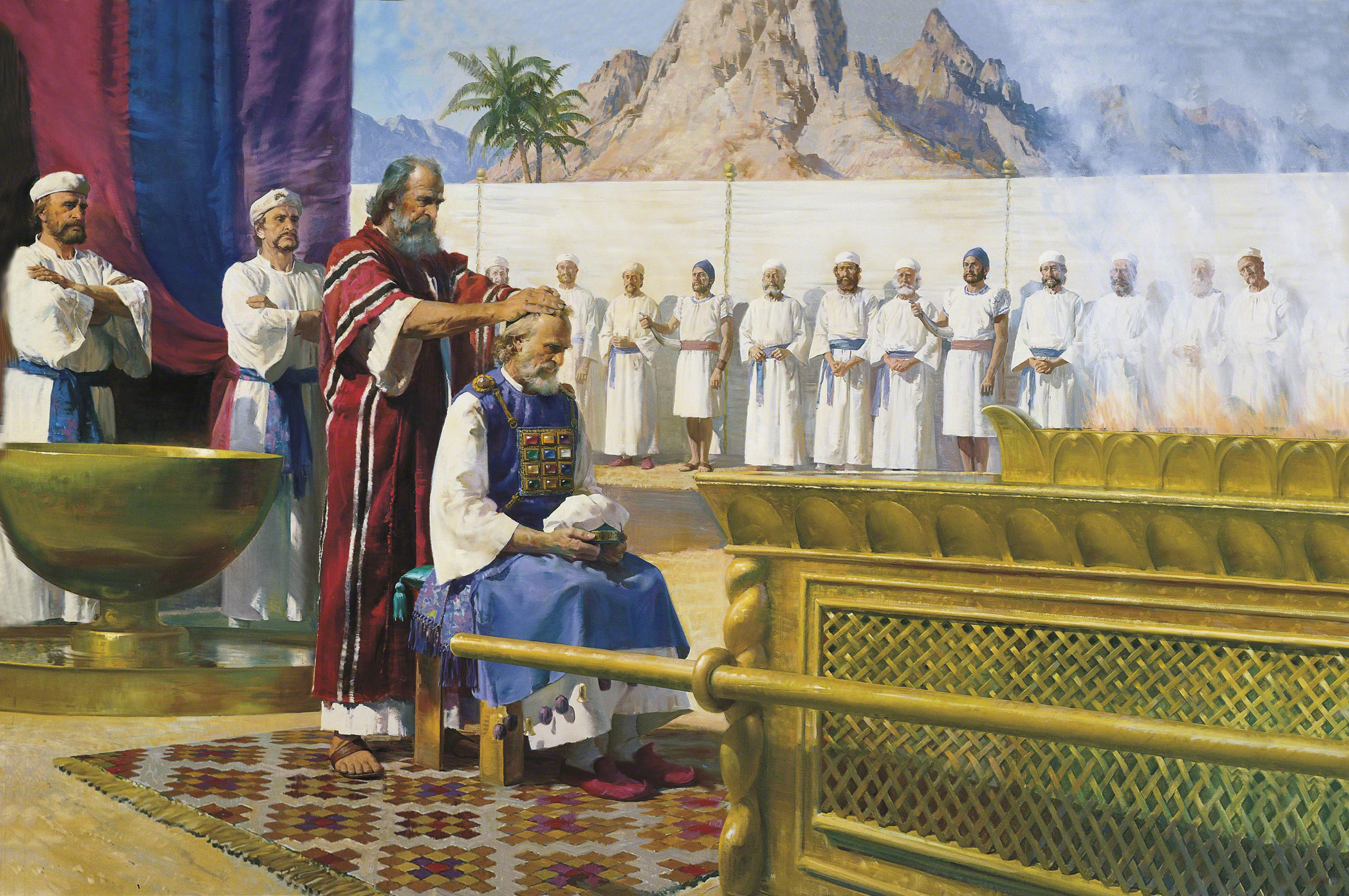 of the high priesthood of the prophet, and gives him a new name 'Jehoshua', which meant 'Jehovah
Delivers', the name 'JESUS'. Moses, like Jesus, is a leader and example to follow.
of the high priesthood of the prophet, and gives him a new name 'Jehoshua', which meant 'Jehovah
Delivers', the name 'JESUS'. Moses, like Jesus, is a leader and example to follow.
- Writings of Moses: In addition to the book of Moses in the Pearl of Great Price, Moses authored the first five books in the Bible: Genesis, Exodus, Leviticus, Numbers, and Deuteronomy.
- Premortal role: selected to preside over a dispensation.14
- Little known or understood: Moses was an adopted son of the tribe of Joseph.15
- Mortal roles: led the Israelites out of Egypt; received the law on Mount Sinai16
- Postmortal roles: appeared on the Mount of Transfiguration, giving priesthood keys to Peter, James, and John17; appeared in the Kirtland Temple in Ohio, USA, on April 3, 1836, restoring the keys of the gathering of Israel to Joseph Smith.18
_______________
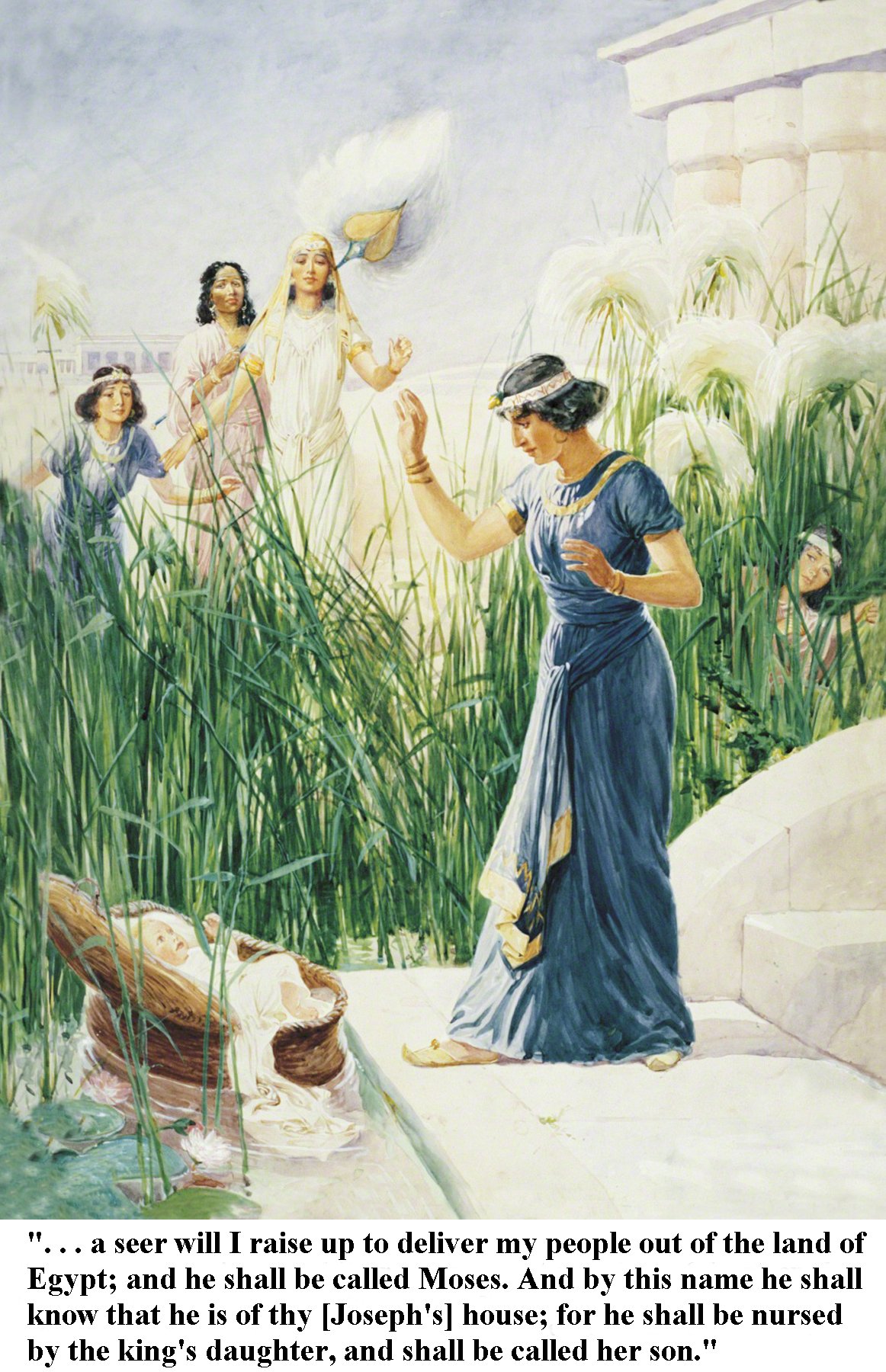
1. Bruce R. McConkie, Mormon Doctrine, 2nd ed. (1966), 515; see also Deuteronomy 18:15–19.
2. See Exodus 1; 2:1–10 & JSP Genesis 50:29.
3. See Exodus 2:11–22; Doctrine and Covenants 84:6.
4. See Exodus 3; 4:1–17.
5. See Exodus 5–12; Ezekiel 45:21.
6. See Exodus 14.
7. See Exodus 13:21–22; 15:22–27; 16; 17:1–7.
8. See Exodus 24:18; 31:18; 32; 34.
9. Exodus 33:11.
10. See Exodus 25–29; 40:21.
11. See Numbers 21:6–9; 1 Nephi 17:41; Alma 33:19–20.
12. See Numbers 14:33–34.
13. See Alma 45:19.
14. See Abraham 3:22-23
15. See JST Genesis 50:29
16. See Exodus 12; 20
17. See Guide to the Scriptures, "Transfiguration," scriptures.lds.org
18. See D&C 110:11
rev. 23 March 2014